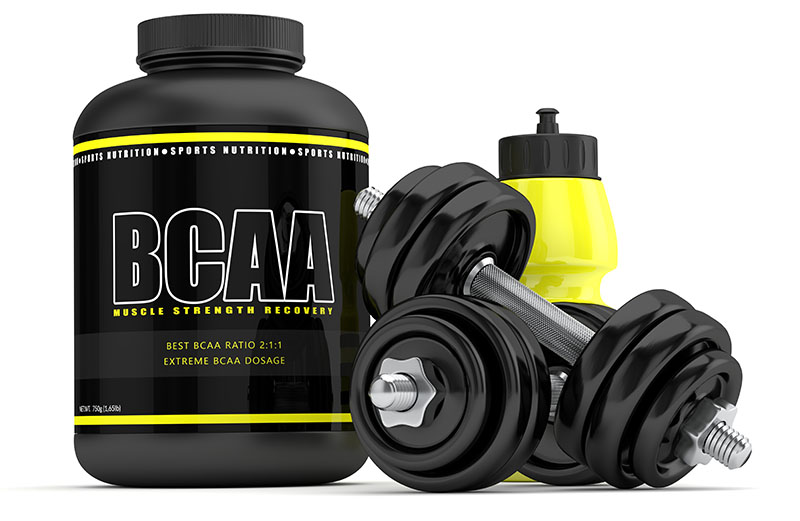
Everyday Chemicals Are Screwing Up Your Testosterone
You may have already read my other article on 7 habits which are killing your testosterone. There was a section in that on Water because

BCAAs or branched-chain amino acids, have been one of the most popular workout supplements for over 3 decades but when does science say is the best time to take BCAAs?
There is a lot of “bro science” out there and everyone seems to have an opinion on the matter.
Especially supplement companies wanting to sell you on their products which now often feature BCAAs in both pre-workout and post-workout drinks they insist you need to be taking. In addition to stand alone BCAA powder they often encourage you to drink throughout the day.
But with extensive HUMAN case studies now performed, it’s time to take lose the “bro” and just stick to the science. After all, why would you want to spend hundreds of dollars a year on a product that may not be all that beneficial after all?
In fact, there may be seriously negative consequences to overloading your body with BCAAs instead of whole protein sources.
There are 3 times people suggest you take BCAA’s
I’m going to dive into the human case studies so you can make an informed decision before shelling out your hard earned cash. But first let’s discuss what exactly are BCAAs and what they do!
The human body uses 21 different amino acids to make all of the proteins it needs to function and build muscle.
Out of these 21 amino acids, 9 are considered “essential” which means your body cannot make these 9 so they need to be ingested via food or supplementation.
The 9 essential amino acids are histidine, isoleucine, leucine, lysine, methionine, phenylalanine, threonine, tryptophan and valine.
Most all animal based foods like steak, chicken, eggs, dairy and whey protein drinks contain all 9 essential amino acids in addition to some non-essential ones.
Out the 9 essential, there are are 3 BCAAs or “branched-chain amino acids” which are leucine, isoleucine, and valine.
These 3 amino acids make up about 35% of your body’s muscle protein and early research suggested supplementing with them could potentially enhance protein synthesis. (1)
However, further research has shown that all 9 essential amino acids are needed to enhance protein synthesis. Let’s take a more indepth look at that.
Researchers gave 24 men after exercise, a 25g supplement of whey protein or 6.5g of whey protein along with either extra leucine or extra essential amino acids without additional leucine.
What they found was 6.5g of whey combined with either the extra leucine or the extra essential amino acids was as effective as 25g of whey protein at stimulating short-term protein synthesis.
HOWEVER, only the 25g of whey supplementation was able to maintain a higher level of protein synthesis for a long period of time.
Their conclusion? Forget trying to focus on specific amino acids and just supplement with a high quality protein like whey as it is more effective. (2)
In 2017, a researcher from the University of Arkansas compiled over 20 different case studies on BCAAs to review.
At the end of his review, he determined that based on all of the research done to date, BCAA supplementation alone showed no ability to increase the rate of protein synthesis because the rate of depletion of the rest of the essential amino acids is too rapid. (3)
This is one of if not the most complete peer reviewed study ever done and if you like nerding out on the science of it all or want to see all the studies looked at, click on the link below for reference #3.
Another study compared supplementing with 15g of whey protein with a 6.75g essential amino acid profile vs supplementing with 6.75g of ALL essential amino acids including of course the BCAAs alone.
This study again found whey protein to be far superior in muscle protein accrual than amino acids alone.
This is believed to be, in part, due to a greater insulin response the body has to ingesting a whole protein source. (4)
Despite overwhelming evidence from multiple case studies showing BCAAs do not increase protein synthesis I was able to find one study in which researchers did find a 22% increase with 5.6g of BCAA supplementation following exercise.
However, even if this singular study is correct and the others shown above are wrong there are 2 things which need to be pointed out.
The research is clear. Stay clear of high priced BCAA supplements if your goal is building muscle and stick to a high quality protein source like Whey.
I would recommend a whey protein isolate with no artificial flavors or sugars added in particular as it’s the most bioavailable form of protein on the market and is low calories as well.
This is where things get really interesting as everyone knows you should supplement with BCAAs while in a fasted state right? Not so fast!
Researchers infused 10 fasted men with BCAAs overnight. While the men’s BCAA plasma concentrations increased by 4X and it did help to stim muscle protein breakdown, they saw the following negatives. (7)
Supplementing with BCAAs in a fasted state may slightly help to stim muscle protein breakdown but it is not going to help you build more muscle.
If your goal is muscle growth, I would suggest starting your nightly fast (in other words the last thing you eat before starting your fast) with a casein protein drink.
Casein is slow digesting protein which also slowly releases its full spectrum of amino acids into your bloodstream.
Supplementing with just 40g of casein protein before bed has been shown to increase protein synthesis by as much as 22% during sleep. (8)
And in another study involving 44 men, researchers saw a significant increase in both strength and muscle size with 27.5g of nightly casein supplementation. (9)
I’m a big believer in intermittent fasting for multiple health reasons so to keep my 16 hours of fasting as strong as possible, my last food consumption is a 30g casein protein drink at 8pm every night so it is as close to bedtime as possible.
I need to point out that some research has shown no significant protein synthesis benefit to a nightly casein protein drink. However if a full spectrum protein is not going to benefit you at night, a BCAA supplement sure won’t.
Delayed Onset Muscle Soreness or DOMS get us all to some degree after heavy weight workouts and/or long endurance training sessions.
This is the one area BCAAs have been shown to potentially play a big benefit.
Multiple human case studies have shown a significant correlation between pre-workout supplementation and decreases in muscle damage and soreness. (10,11,12,13,13,15)
So supplementing with BCAAs before your workout may be something to consider.
However, as has been demonstrated throughout this article, high quality protein sources are far more superior and beneficial overall.
As of yet, no researchers have compared BCAAs vs whey protein specifically for muscle damage.
While the clinical research has not yet been done, it is logical to expect consuming a whey protein shake before your workout would be as effective if not much more effective than consuming BCAAs based on the overwhelming evidence currently at hand.
Plus whey protein contains lactoferrin, which studies have shown to have an anti-inflammatory effect as well as support a natural immune response to disease. (16)
And if you are concerned that your protein shake needs to be taken after your workout, don’t be.
Multiple studies have now shown it does not matter whether you take your protein shake before or after your workout in terms of strength and muscle gains. (17)
References

You may have already read my other article on 7 habits which are killing your testosterone. There was a section in that on Water because

Rhodiola Rosea stands out as a potent adaptogenic herb with a rich history of traditional use and a growing body of scientific research. Revered for

In this comprehensive article, we will explore what L-tyrosine is, its benefits as a pre-workout supplement, the correct dosage, and other potential health benefits it

Betaine anhydrous is becoming an increasingly popular ingredient for pre-workouts. In this article, we will explore the fundamentals of betaine anhydrous, its connection to carnosine,

Beta-alanine is a pre-workout powerhouse. From boosting workout performance to potential anti-aging effects, discover why this amino acid is a favorite among health buffs.

You may have already read my other article on 7 habits which are killing your testosterone. There was a section in that on Water because

Rhodiola Rosea stands out as a potent adaptogenic herb with a rich history of traditional use and a growing body of scientific research. Revered for

In this comprehensive article, we will explore what L-tyrosine is, its benefits as a pre-workout supplement, the correct dosage, and other potential health benefits it

In the ancient wilderness, a legendary creature prowled the untamed lands—a fierce and noble Alpha Wolf. This majestic beast possessed an aura of strength and resilience, leading its pack with unwavering authority.
In a parallel realm, a group of visionary alchemists delved into the mysteries of nature, seeking to create potent elixirs that could unlock the true potential of those who dared to embrace their inner power.
As fate would have it, these paths crossed, and an extraordinary alliance was forged. The Alpha Wolf and the alchemists found common ground in their pursuit of greatness, and thus, Alpha Wolf Nutrition was born.
United by a shared passion for excellence, the Alpha Wolf and the alchemists dedicated themselves to crafting supplements that harnessed the raw force of nature, empowering individuals to conquer their inner and outer worlds.
At Alpha Wolf Nutrition, we draw inspiration from the primal instincts of the Alpha Wolf—the embodiment of strength, leadership, and vitality. We believe that every individual possesses a dormant power within, waiting to be awakened.
Through our meticulously crafted products, we strive to unleash this dormant potential, allowing you to thrive in the face of challenges and embrace your true nature.
Our commitment lies in providing you with the highest quality, scientifically proven ingredients, carefully curated to deliver optimal results. We leave no room for guesswork, basing our formulations on human-backed research to ensure real, tangible benefits. With us, you’ll find no “proprietary blends” or token additions—just pure, effective dosages that fuel your journey to greatness.
Join the pack of Alpha Wolves and embark on a transformative journey with Alpha Wolf Nutrition. Embrace your inner strength, rise above the ordinary, and conquer your aspirations. Unleash the power within and let the spirit of the Alpha Wolf guide you to achieve your highest potential. Welcome to Alpha Wolf Nutrition, where the path to greatness awaits.

Alpha Wolf Nutrition is based on real science and results for the people we serve.
We do not cut corners, we do not hide behind “proprietary blends” and we do not put in worthless amounts of token ingredients to fill up a label.
What we do, is kick ass!

© 2016 – 2023 Alpha Wolf
Discount Applied Successfully!
Your savings have been added to the cart.